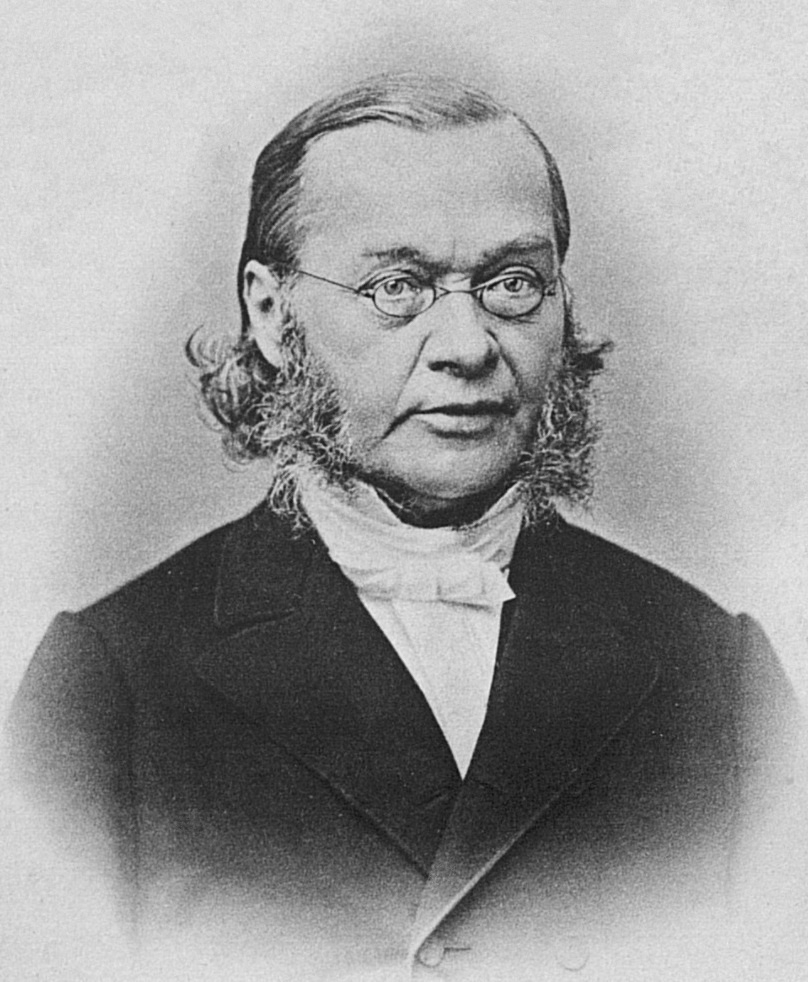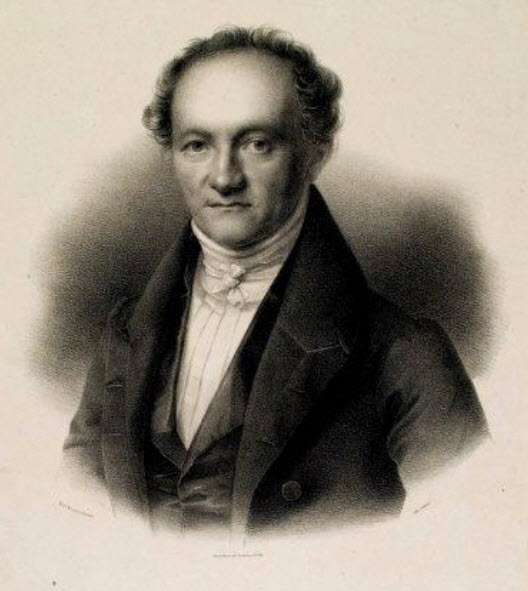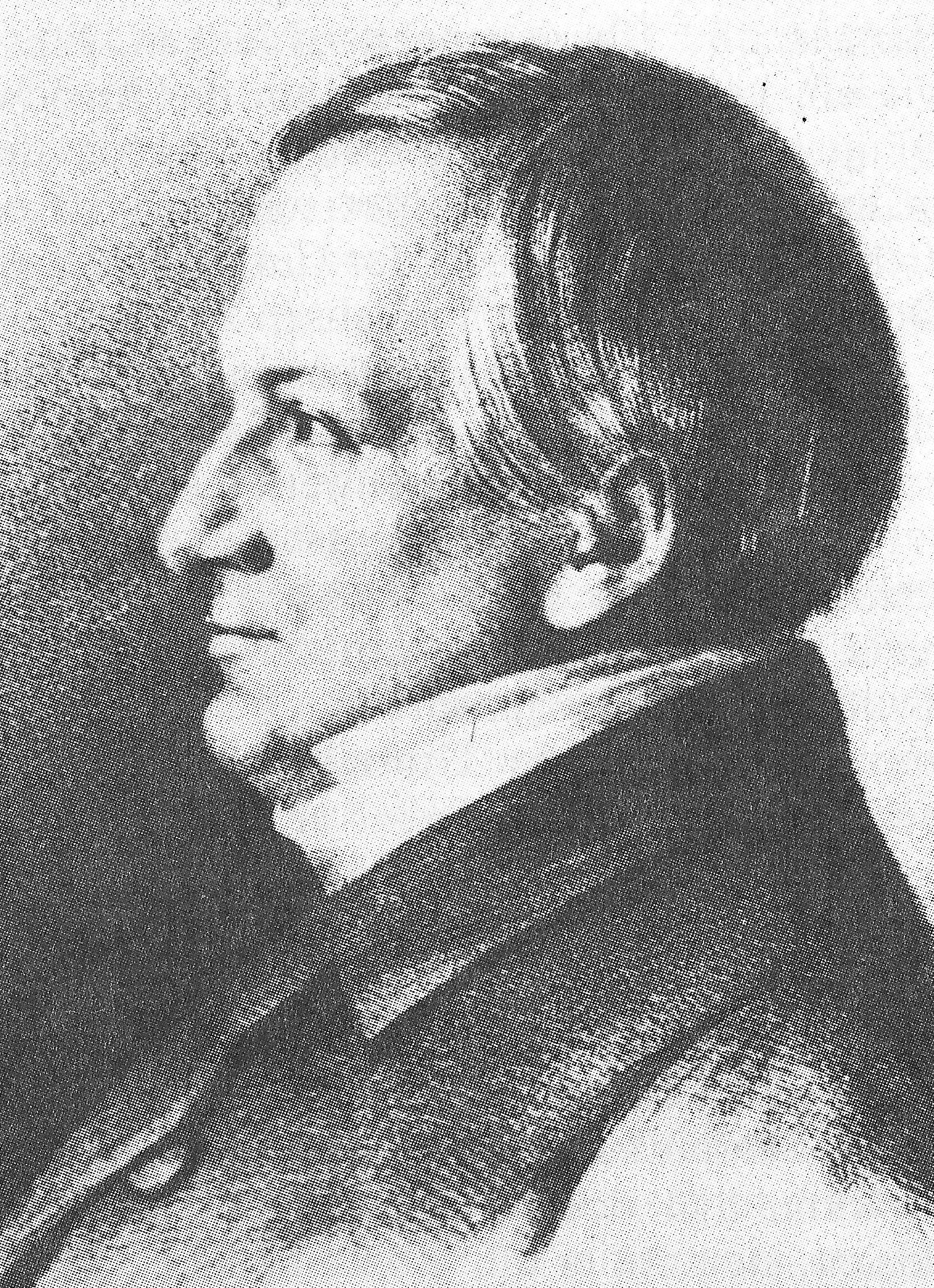|
Hengstenberg
Ernst Wilhelm Theodor Herrmann Hengstenberg (20 October 1802, in Fröndenberg28 May 1869, in Berlin), was a German Lutheran churchman and neo-Lutheran theologian from an old and important Dortmund family. He was born at Fröndenberg, a Westphalian town, and was educated by his father Johann Heinrich Karl Hengstenberg, who was a famous minister of the Reformed Church and head of the Fröndenberg convent of canonesses ( Fräuleinstift). His mother was Wilhelmine then Bergh. Entering the University of Bonn in 1819, Hengstenberg attended the lectures of Georg Wilhelm Freytag for Oriental languages and of Johann Karl Ludwig Gieseler for church history, but his energies were principally devoted to philosophy and philology, and his earliest publication was an edition of the Arabic ''Mu'allaqat'' of Imru' al-Qais, which gained for him a prize at his graduation in the philosophical faculty. This was followed in 1824 by a German translation of Aristotle's ''Metaphysics''. Finding himself ... [...More Info...] [...Related Items...] OR: [Wikipedia] [Google] [Baidu] |
Fröndenberg
Fröndenberg (; Westphalian: ''Frönnenbiärg'') is a town in the district of Unna, in North Rhine-Westphalia, Germany. Geography Fröndenberg is situated in the Ruhr valley, approx. 10 km south-east of the district capital Unna, near the Hönne. Neighbouring places * Unna * Wickede * Menden * Schwerte * Holzwickede History The city as such is relatively new, it grew out of the reorganization in 1902 whereby the former independent villages Stift, Westick and village Froendenberg melted into the bigger village community of Fröndenberg. It obtained city status in 1952. The oldest record of the name ` Frundeberg` is the papal document by Coelestin III from 1197. The present day administrative infrastructure goes back to 1968 when the villages Altendorf, Ardey, Bausenhagen, Dellwig, Frohnhausen, Frömern, Langschede, Neimen, Ostbüren, Stentrop, Strickherdicke, the town of Warmen and the town of Fröndenberg were merged into one administrative unit. In 1969 the village Ben ... [...More Info...] [...Related Items...] OR: [Wikipedia] [Google] [Baidu] |
Neo-Lutheran
Neo-Lutheranism was a 19th-century revival movement within Lutheranism which began with the Pietist-driven '' Erweckung,'' or ''Awakening'', and developed in reaction against theological rationalism and pietism. This movement followed the Old Lutheran movement and focused on a reassertion of the identity of Lutherans as a distinct group within the broader community of Christians, with a renewed focus on the Lutheran Confessions as a key source of Lutheran doctrine. Associated with these changes was a renewed focus on traditional doctrine and liturgy, which paralleled the growth of Anglo-Catholicism in England. It was sometimes even called "German Puseyism". In the Roman Catholic Church in Germany, neo-Lutheranism was paralleled by Johann Adam Möhler. The chief literary organ of the neo-Lutheranism was ''Evangelische Kirchenzeitung'', edited by Ernst Wilhelm Hengstenberg. Repristination versus Erlangen school Neo-Lutheranism developed as a reaction against the Prussian Union i ... [...More Info...] [...Related Items...] OR: [Wikipedia] [Google] [Baidu] |
Wilhelm Gesenius
Heinrich Friedrich Wilhelm Gesenius (3 February 178623 October 1842) was a German orientalist, lexicographer, Christian Hebraist, Lutheran theologian, Biblical scholar and critic. Biography Gesenius was born at Nordhausen. In 1803 he became a student of philosophy and theology at the University of Helmstedt, where Heinrich Henke was his most influential teacher; but the latter part of his university course was taken at Göttingen, where Johann Gottfried Eichhorn and Thomas Christian Tychsen were then at the height of their popularity. In 1806, shortly after graduation, he became ''Repetent'' and ''Privatdozent'' (or ''Magister legens'') at Göttingen; and, as he was later proud to say, had August Neander for his first pupil in Hebrew language. On 8 February 1810 he became ''professor extraordinarius'' in theology, and on 16 June 1811 was promoted to ''ordinarius'', at the University of Halle, where, in spite of many offers of high preferment elsewhere, he spent the rest of his l ... [...More Info...] [...Related Items...] OR: [Wikipedia] [Google] [Baidu] |
Lutheran
Lutheranism is one of the largest branches of Protestantism, identifying primarily with the theology of Martin Luther, the 16th-century German monk and reformer whose efforts to reform the theology and practice of the Catholic Church launched the Protestant Reformation. The reaction of the government and church authorities to the international spread of his writings, beginning with the '' Ninety-five Theses'', divided Western Christianity. During the Reformation, Lutheranism became the state religion of numerous states of northern Europe, especially in northern Germany, Scandinavia and the then- Livonian Order. Lutheran clergy became civil servants and the Lutheran churches became part of the state. The split between the Lutherans and the Roman Catholics was made public and clear with the 1521 Edict of Worms: the edicts of the Diet condemned Luther and officially banned citizens of the Holy Roman Empire from defending or propagating his ideas, subjecting advocates of Lutheranis ... [...More Info...] [...Related Items...] OR: [Wikipedia] [Google] [Baidu] |
Johann August Wilhelm Neander
Johann August Wilhelm Neander (17 January 178914 July 1850) was a German theologian and church historian. Biography Neander was born at Göttingen as David Mendel. His father, Emmanuel Mendel, is said to have been a Jewish peddler, but August adopted the name of Neander on his baptism as a Protestant Christian. While still very young, he moved with his mother to Hamburg. After completing grammar school (''Johanneum''), he enrolled in a gymnasium, where the study of Plato appears to have especially engrossed him. Some of his early attachments include Wilhelm Neumann, writer Karl August Varnhagen von Ense, and the poet Adelbert von Chamisso. Baptized on 25 February 1806, Neander went to Halle to study divinity at the age of 17. Friedrich Schleiermacher was then lecturing at Halle. Neander found in him the inspiration he needed, while Schleiermacher found a congenial pupil; one destined to propagate his views in a higher and more effective Christian form. Before the end of that y ... [...More Info...] [...Related Items...] OR: [Wikipedia] [Google] [Baidu] |
Ernst Ludwig Von Gerlach
Ernst Ludwig von Gerlach (7 March 1795 – 18 February 1877) was a Prussian politician, editor and judge. He is considered one of the main founders and leading thinkers of the Conservative Party in Prussia and was for many years its leader in the Prussian House of Representatives. Like his brother Leopold von Gerlach, he belonged to the circle that formed around the ''Neue Preußische Zeitung'' (New Prussian Newspaper), in the founding of which he also played a leading role. Life Origins and youth Gerlach was born in Berlin in 1795 to a family of Prussian bureaucratic gentry, the fourth child of the mayor of Berlin, Carl Friedrich Leopold von Gerlach. Among his brothers were the later general and adjutant to the Prussian king Leopold von Gerlach and the theologian and court chaplain Otto von Gerlach. Between 1810 and 1815 Ernst Ludwig studied law, with interruptions, at the newly founded University of Berlin, then later in Göttingen and Heidelberg. From 1813 to 1815 he fo ... [...More Info...] [...Related Items...] OR: [Wikipedia] [Google] [Baidu] |
Augsburg Confession
The Augsburg Confession, also known as the Augustan Confession or the Augustana from its Latin name, ''Confessio Augustana'', is the primary confession of faith of the Lutheran Church and one of the most important documents of the Protestant Reformation. The Augsburg Confession was written in both German and Latin and was presented by a number of German rulers and free-cities at the Diet of Augsburg on 25 June 1530. The Holy Roman Emperor Charles V had called on the Princes and Free Territories in Germany to explain their religious convictions in an attempt to restore religious and political unity in the Holy Roman Empire and rally support against the Ottoman invasion in the 16th century Siege of Vienna. It is the fourth document contained in the Lutheran ''Book of Concord''. Background Philipp Melanchthon, Martin Luther and Justus Jonas had already drafted a statement of their theological views in the Articles of Schwabach in 1529,Johann Michael Reu, ''The Augsburg Conf ... [...More Info...] [...Related Items...] OR: [Wikipedia] [Google] [Baidu] |
Friedrich August Tholuck
Friedrich August Gottreu Tholuck (30 March 1799 – 10 June 1877), known as August Tholuck, was a German Protestant theologian, pastor, and historian, and church leader. Biography Tholuck was born at Breslau, and educated at the gymnasium and university there. He distinguished himself by his ability to learn languages. A love of Oriental languages and literature led him to exchange the University of Breslau for that of Berlin, in order to study to greater advantage, and there he was received into the house of the Orientalist Heinrich Friedrich von Diez (1750–1817). He was introduced to pietistic circles in Berlin, and came under the influence of Baron Hans Ernst von Kottwitz, who became his "spiritual father," and of the historian Neander. Before deciding on the career of theological professor, he had in view that of a missionary in the East. Meanwhile, he was feeling the influence to a certain degree of the romantic school, and of Schleiermacher and G. W. F. Hegel too, thou ... [...More Info...] [...Related Items...] OR: [Wikipedia] [Google] [Baidu] |
Basel
, french: link=no, Bâlois(e), it, Basilese , neighboring_municipalities= Allschwil (BL), Hégenheim (FR-68), Binningen (BL), Birsfelden (BL), Bottmingen (BL), Huningue (FR-68), Münchenstein (BL), Muttenz (BL), Reinach (BL), Riehen (BS), Saint-Louis (FR-68), Weil am Rhein (DE-BW) , twintowns = Shanghai, Miami Beach , website = www.bs.ch Basel ( , ), also known as Basle ( ),french: Bâle ; it, Basilea ; rm, label= Sutsilvan, Basileia; other rm, Basilea . is a city in northwestern Switzerland on the river Rhine. Basel is Switzerland's third-most-populous city (after Zürich and Geneva) with about 175,000 inhabitants. The official language of Basel is (the Swiss variety of Standard) German, but the main spoken language is the local Basel German dialect. Basel is commonly considered to be the cultural capital of Switzerland and the city is famous for its many museums, including the Kunstmuseum, which is the first collection of art accessibl ... [...More Info...] [...Related Items...] OR: [Wikipedia] [Google] [Baidu] |
Johann Jakob Stähelin
Johann Jakob Stähelin (1 May 1797, in Basel – 27 August 1875, in Langenbruck) was a Swiss theologian, who specialized in Old Testament studies. From 1817 to 1821 he studied theology at the University of Tübingen. In 1823 he received his PhD and subsequently worked as a lecturer at the University of Basel. In 1829 he became an associate professor at Basel, where in 1835 he was named a full professor of Old Testament studies. In 1842 he obtained his doctorate of divinity, and in 1846 was appointed university rector. Principal works * ''Kritische Untersuchungen über die Genesis'', 1830 – Critical investigations on the biblical Genesis. * ''Kritische Untersuchungen über die biblische Chronik'', 1830 – Critical investigations on the biblical Chronicles. * ''Kritische Untersuchungen über den Pentateuch, die Bucher Josua, Richter, Samuels und der Könige'', 1843 – Critical investigations on the Pentateuch, the Books of Joshua, Judges, Samuel and Kings Kings ... [...More Info...] [...Related Items...] OR: [Wikipedia] [Google] [Baidu] |
University Of Berlin
Humboldt-Universität zu Berlin (german: Humboldt-Universität zu Berlin, abbreviated HU Berlin) is a German public research university in the central borough of Mitte in Berlin. It was established by Frederick William III on the initiative of Wilhelm von Humboldt, Johann Gottlieb Fichte and Friedrich Ernst Daniel Schleiermacher as the University of Berlin () in 1809, and opened in 1810, making it the oldest of Berlin's four universities. From 1828 until its closure in 1945, it was named Friedrich Wilhelm University (german: Friedrich-Wilhelms-Universität). During the Cold War, the university found itself in East Berlin and was ''de facto'' split in two when the Free University of Berlin opened in West Berlin. The university received its current name in honour of Alexander and Wilhelm von Humboldt in 1949. The university is divided into nine faculties including its medical school shared with the Freie Universität Berlin. The university has a student enrollment of around ... [...More Info...] [...Related Items...] OR: [Wikipedia] [Google] [Baidu] |


.jpg)


.jpg)

